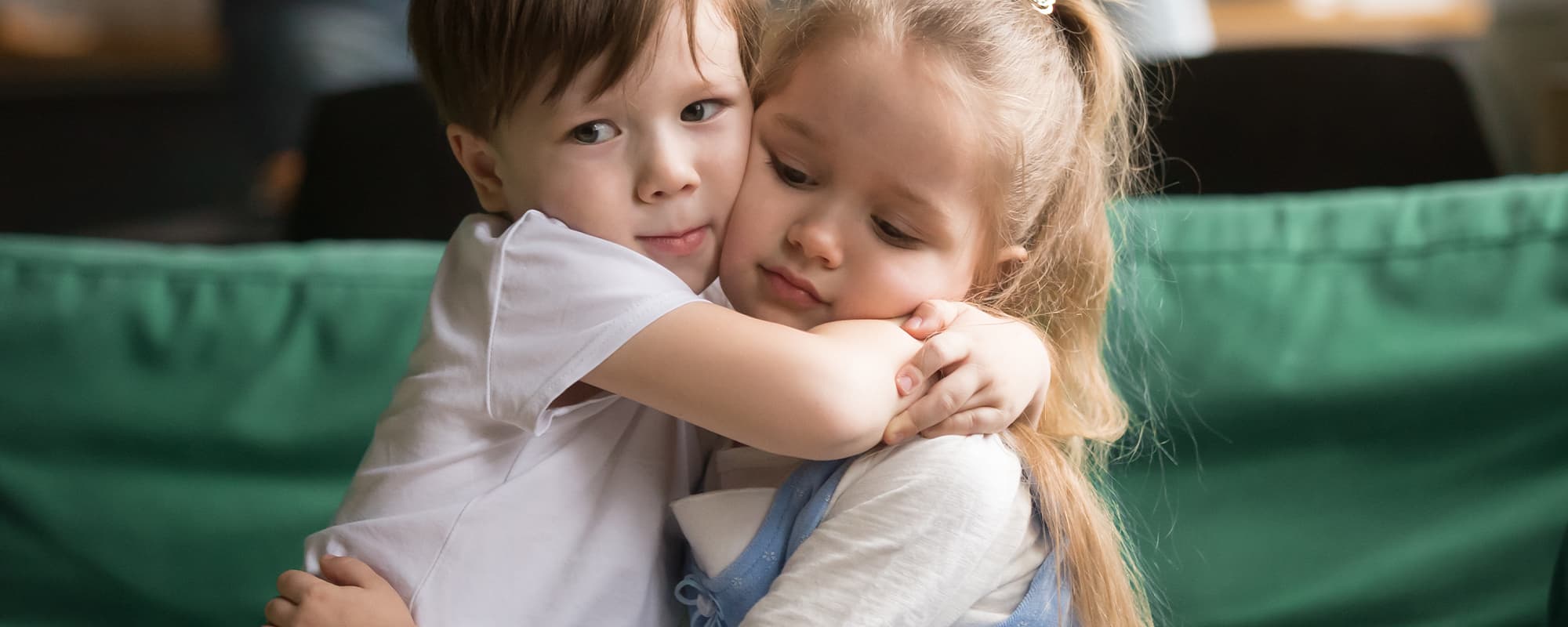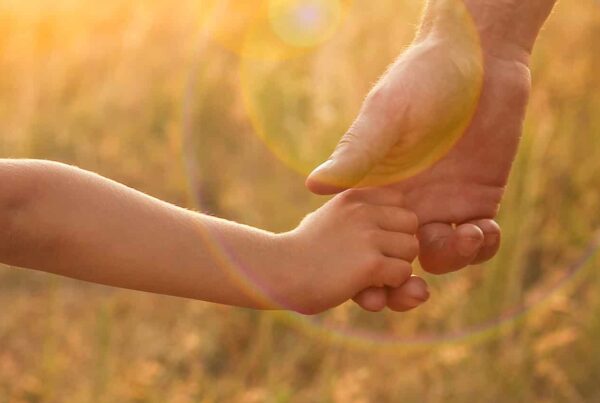“…Say sorry!”
The little girl looks down at her shiny black shoes and pouts. Silence.
“Go on!” presses her Mum.
She manages to squeeze out a sulky, “Sorry.”
The whole scene is unsettling to watch. It’s painful being that squirming girl – the awkwardness, the shame, the humiliation. It’s incredibly uncomfortable being the parent trying to squeeze out an apology from your reluctant child. And being on the receiving end of a forced ‘sorry’ does little to smooth over the wrongdoing.
Other times, children have learnt to roll out the socially expected, “Sorry!” and we face a new challenge: kids are quick to notice that a “sorry” lets them off the hook. Kicked someone? Stood on their toy? Say “sorry” and you’re acquitted. It’s a far cry from a meaningful apology that eases upset feelings.
Apologies matter, and they matter a lot. Heartfelt apologies don’t fully erase a hurt, but they do express that you care, and that’s important. Countless research studies show how sincere apologies really do curb anger and resentment leading to better relationships.
Throughout history apologies have been pivotal. Like in recent times how First Nations people across Australia and the Torres Strait were deeply moved and in tears when in 2008 The Prime Minister of Australia, Kevin Rudd, finally apologised to the Stolen Generations for the wrongs that past government policies inflicted.
We’ve all felt our hearts soften after someone has apologised to us for wrongdoing. And we all want our children to grow up being able to give heartfelt apologies. We want them to be kind, caring and compassionate. We want them to have good manners, to fit into society and get along well with others.
Saying sorry is healing.
But a forced sorry is a far cry from a genuine apology. So what can we do to help our children give apologies that move others whilst leaving them feeling empowered, not humiliated? And how can we do that in a way that navigates social expectations in the present moment?
Here are seven pointers that will show you how. The exact order we do them might vary and some may not be needed depending on the situation.
Recognise that Your Child Needs Your Support
It helps to notice how children are always doing their best to fit in and belong. Every child wants nothing more than to feel connected and close to the people around them. When a child hurts someone else or damages their things, be it accidentally or intentionally, they feel bad inside.
Sometimes it can look like they don’t care but deep down they’re hurting. And when a child feels hurt they cannot think. They need our support to bring them back to their true selves and regain their dignity.
Help Your Child Think Again
A child who’s done something hurtful will feel bad. Either big feelings provoked them to lash out in the first place or doing something hurtful made them feel terrible (ashamed about what happened and perhaps scared about what’s going to happen to them).
A child who is overwhelmed by upset cannot think – they literally cannot access the thinking part of the brain (prefrontal cortex) when their emotional brain (limbic system) is flooded.
If we move in close with warmth and empathy, our child will feel our caring and support. That vital connection might be enough to help them think well, or it might give them safety to offload any emotional tension they are carrying.
We need to help our child move through any upset they are carrying, so they can think more clearly again, then they’ll be better placed to give a heartfelt apology.
When we stay nearby offering our love, our child will feel safe enough to cry or rage releasing the feelings of hurt inside. Giving a child time to work through feelings means they’ll be more able to realise the cost of their harsh words / hurtful actions and be moved to make amends.
We can think of this way of listening to a child’s emotions as “holding space” for feelings.
Help Your Child Realise What’s Happened and to Take Responsibility
What’s obvious to you – your child knocked somebody down – may need to be pointed out. For young children this cause and effect often remains a mystery. They may have no idea that the way they jumped caused the accident. “You swung your school bag and it hurt Lila’s arm. Look it hurts, she’s crying.”
You’ll need to hold the expectation that your child sticks around at the scene. You might need to go after them and hold their hand to bring them back to the situation, “You need to come back, Lila got hurt.”
Often kids will say, “It was an accident” which can be a way of wriggling out of taking responsibility. We can say something like, “Maybe you didn’t mean to, but she got hurt.”
Stay Nearby and Listen
Sticking around the scene to offer support is meaningful for the hurt child, your warm attention and concern helps, “Are you okay?”
If the hurt child is crying, it’s better to simply stay close and wait attentively for them to finish shedding their tears before trying to fix things up. Rushing to say sorry, or make amends, can be jarring when we are upset.
Instead, we can focus on what happened, “You got hurt when Jack swung his bag” and the hurt child might cry some more but she will feel so much better to get those tears out than to keep them bottled up. Once she’s through her upset, she’ll be in a good place to hear an apology.
Make Amends
Once the child who caused the problem fully understands what has happened and both children have had the chance to release emotional tension, it’s time to take action. Often kids are grateful to have something tangible to do. They can’t stop the other kid’s pain but they can offer comfort.
It can be an empowering opportunity for a child to learn that we all make mistakes – and we can always take action to make things better. If we broke an object – we can fix it up. If we injured someone – we can get a Band-Aid or ice. If we hurt a relationship – we can repair it, “How can I make things up to you?
Meet Social Expectations
Eventually your child will say sorry and mean it. In the meantime, go ahead and say sorry yourself but don’t insist that they do. Apologising on behalf of our child is an easy way to navigate social expectations, without making your child feel ashamed. This is especially useful with very young children.
Sometimes, for older kids, a little nudge is useful, warmly whispering (to avoid embarrassing our child) something like, “When you feel able, it would be really good to say sorry to Fred for tearing up his picture”. This doesn’t guarantee that a child will say sorry but it gently holds the expectation that this is what we do once we feel remorse whilst sending the message to your child that you are on his side.
Of course modelling saying sorry in our own lives is powerful too. Children are quick learners and easily pick up that this is what we do when we’ve hurt someone.
Give Reassurances
Offering reassurances like “I won’t do it again” offers meaningful safety for the hurt child. We can create this by saying, “Are you going to do that again?” Reassurance is often more important to a child than an apology. A “sorry” pleases adults but is less important to children. Reassurance matters to a child.
If a child can’t offer reassurance it’s your job to step in and hold the expectation, “I can’t let you hit him again”; “I won’t let him hit you again” and stay close by ready to set a limit and prevent repeated misdemeanours.
Children need our support to regain their dignity and to figure out a way to make amends. Instead of insisting children say sorry, we can help them to think again and repair things. Children who are given the opportunity to offload emotional tension and participate in helping the other child feel better often do amazing things.
Follow these seven pointers and before long you’ll be delighted to witness your child giving heartfelt apologies spontaneously. I was touched a few weeks ago when a four year old boy I know, took off on a bike without training wheels for the first time only to bowl over a one year old and fall off.
The four year old, who was also hurt, picked himself up and immediately went to help the little boy get up, said a caring “sorry” and walked with the little kid back towards his mum. It was so sweet to watch.
Children are naturally caring – we need only support their innate compassion to raise a child that willingly gives heartfelt apologies.





